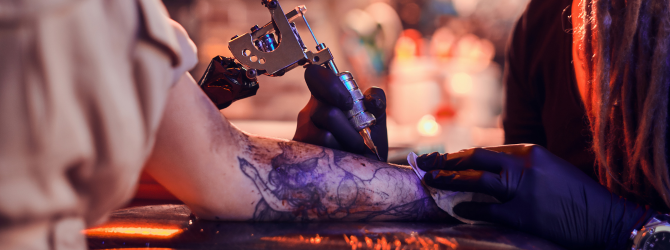Inked & Informed: Understanding Hepatitis and Safe Tattoos
Tattoos have long been a form of self-expression, artistry, and cultural identity for people around the globe. From intricate designs to meaningful symbols, tattoos adorn the bodies of millions, telling stories and reflecting personalities. World Tattoo Day, held annually on 21st March, celebrates the art, history and culture of tattooing.
What’s the risk of hepatitis when getting a tattoo?
Hepatitis B and hepatitis C can be passed on through blood-to-blood contact. This is when the blood of someone with hepatitis B or C gets into someone else’s blood.
The risk of hepatitis B and hepatitis C when getting a tattoo depends on whether the tattoo equipment has been thoroughly cleaned. Tattoo needles and tattoo ink that haven’t been sterilised can spread blood from one person to another.
What are ‘backyard’ tattoos
Most cases of viral hepatitis from tattoos come from what’s known as ‘backyard’ tattoos. This is when a tattoo is done outside of a professional tattoo studio, like someone’s home, backyard or prison. These tattoos are typically done by untrained or unlicensed people using equipment that hasn’t been sterilised.

What about professional tattoo studios?
In Queensland, licensed tattooists have to follow strict hygiene standards to prevent diseases from spreading. This includes sterilising equipment thoroughly and using separate ink containers between clients. As well as lowering the risk of disease, seeing a professional means you are likely to get better art and reduce the likelihood of nerve damage.
Choosing a safe tattoo studio
When visiting a tattoo studio, don’t hesitate to ask about their hygiene and sterilisation practices. Reputable tattoo artists will gladly provide information on how they maintain a safe and clean environment for their clients.
Getting tested for hepatitis
Hepatitis symptoms often go unnoticed for many years. If you’re concerned you may have been exposed to hepatitis B or C while getting a tattoo, getting tested involves a blood test or fingerstick test. Your local doctor can organise this.
If you do test positive, the good news is hepatitis B can be managed with regular check-ups and hepatitis C can be cured.
